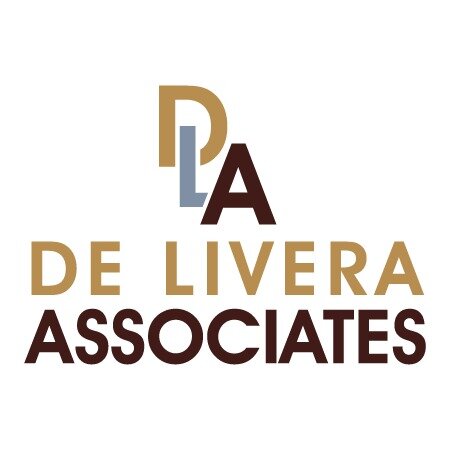Best Bankruptcy Lawyers in Sri Lanka
Share your needs with us, get contacted by law firms.
Free. Takes 2 min.
Or refine your search by selecting a city:
List of the best lawyers in Sri Lanka
About Bankruptcy Law in Sri Lanka
Bankruptcy law in Sri Lanka provides a legal framework through which individuals or businesses unable to meet their debt obligations can seek relief by liquidating assets or proposing a repayment plan. The law aims to ensure fair distribution of the debtor's assets among creditors and to give the debtor a chance to make a fresh financial start. Bankruptcy proceedings in Sri Lanka are governed by the Insolvency Ordinance, which is administered by the District Courts.
Why You May Need a Lawyer
Engaging a lawyer can be crucial in several scenarios related to bankruptcy in Sri Lanka. If you are struggling with overwhelming debt and considering filing for bankruptcy, a lawyer can help you assess whether it's the right course of action and guide you through the complex legal process. In cases where creditors are pursuing aggressive collection actions, legal representation can help protect your rights. Additionally, if a debtor wants to challenge a bankruptcy proceeding initiated against them by a creditor, a lawyer can provide essential support.
Local Laws Overview
In Sri Lanka, the Insolvency Ordinance outlines the procedures and legal principles concerning bankruptcy. Key aspects include the classification of creditors, the appointment of a trustee to manage the debtor's estate, and the process for asset liquidation. The bankruptcy process aims to prioritize secured creditors and address the interests of unsecured creditors in a standardized manner. The law also facilitates the possibility for individuals to propose schemes of arrangement to pay off debts over time.
Frequently Asked Questions
1. What is the role of a trustee in bankruptcy proceedings?
The trustee is responsible for managing the bankrupt estate, including collecting and liquidating assets, investigating financial affairs, and distributing proceeds to creditors.
2. What types of debts are discharged in bankruptcy?
Not all debts can be discharged. Common dischargeable debts include unsecured loans or credit card debts. However, secured debts like mortgages or certain tax obligations may not be fully discharged.
3. How long does a bankruptcy case take to resolve in Sri Lanka?
The timeframe can vary depending on the complexity of the case and the nature of the assets involved. It can take several months to several years to complete bankruptcy proceedings.
4. Can all types of businesses file for bankruptcy?
Yes, both individuals and businesses in financial distress can file for bankruptcy under the relevant provisions of the Insolvency Ordinance.
5. Are there alternatives to filing for bankruptcy?
Yes, alternatives may include negotiating with creditors, entering into informal arrangements, or seeking a court-sanctioned scheme of arrangement for debt repayment.
6. How will bankruptcy affect my credit score?
Filing for bankruptcy will negatively impact your credit score and remain on your credit history, making it challenging to obtain credit in the future.
7. Can I prevent a creditor from filing a bankruptcy application against me?
Legal steps can be taken to contest the application if grounds exist, such as disputing the debt. A lawyer can provide guidance in such matters.
8. What is a scheme of arrangement?
A scheme of arrangement is a court-approved agreement that allows a bankrupt individual to repay their creditors over time, possibly with reduced obligations.
9. Can I keep any assets after filing for bankruptcy?
There may be exemptions for certain personal items, but most assets could be liquidated to repay debts, as per the guidelines of the Insolvency Ordinance.
10. What happens to my employment if I declare bankruptcy?
Bankruptcy does not directly affect employment. However, some professional roles may have restrictions related to an individual's bankruptcy status.
Additional Resources
The following resources can provide further assistance:
- The official website of the Ministry of Justice for latest updates and contact details.
- The Sri Lanka Insolvency Practitioners Association for assistance with finding qualified professionals.
- Legal aid organizations and local bar associations for potential pro bono legal help.
Next Steps
If you require legal assistance in bankruptcy, consider the following steps:
- Consult with a qualified attorney who specializes in bankruptcy law to discuss your situation.
- Gather all financial documents, including debts, income sources, and asset details, to provide a comprehensive view to your lawyer.
- Explore mediation or settlement options with creditors before opting for court proceedings.
- Attend informational sessions or workshops on financial management and legal rights.
Taking proactive steps with the guidance of legal professionals can help navigate the complexities of bankruptcy effectively.
Lawzana helps you find the best lawyers and law firms in Sri Lanka through a curated and pre-screened list of qualified legal professionals. Our platform offers rankings and detailed profiles of attorneys and law firms, allowing you to compare based on practice areas, including Bankruptcy, experience, and client feedback.
Each profile includes a description of the firm's areas of practice, client reviews, team members and partners, year of establishment, spoken languages, office locations, contact information, social media presence, and any published articles or resources. Most firms on our platform speak English and are experienced in both local and international legal matters.
Get a quote from top-rated law firms in Sri Lanka — quickly, securely, and without unnecessary hassle.
Disclaimer:
The information provided on this page is for general informational purposes only and does not constitute legal advice. While we strive to ensure the accuracy and relevance of the content, legal information may change over time, and interpretations of the law can vary. You should always consult with a qualified legal professional for advice specific to your situation.
We disclaim all liability for actions taken or not taken based on the content of this page. If you believe any information is incorrect or outdated, please contact us, and we will review and update it where appropriate.
Browse bankruptcy law firms by city in Sri Lanka
Refine your search by selecting a city.











